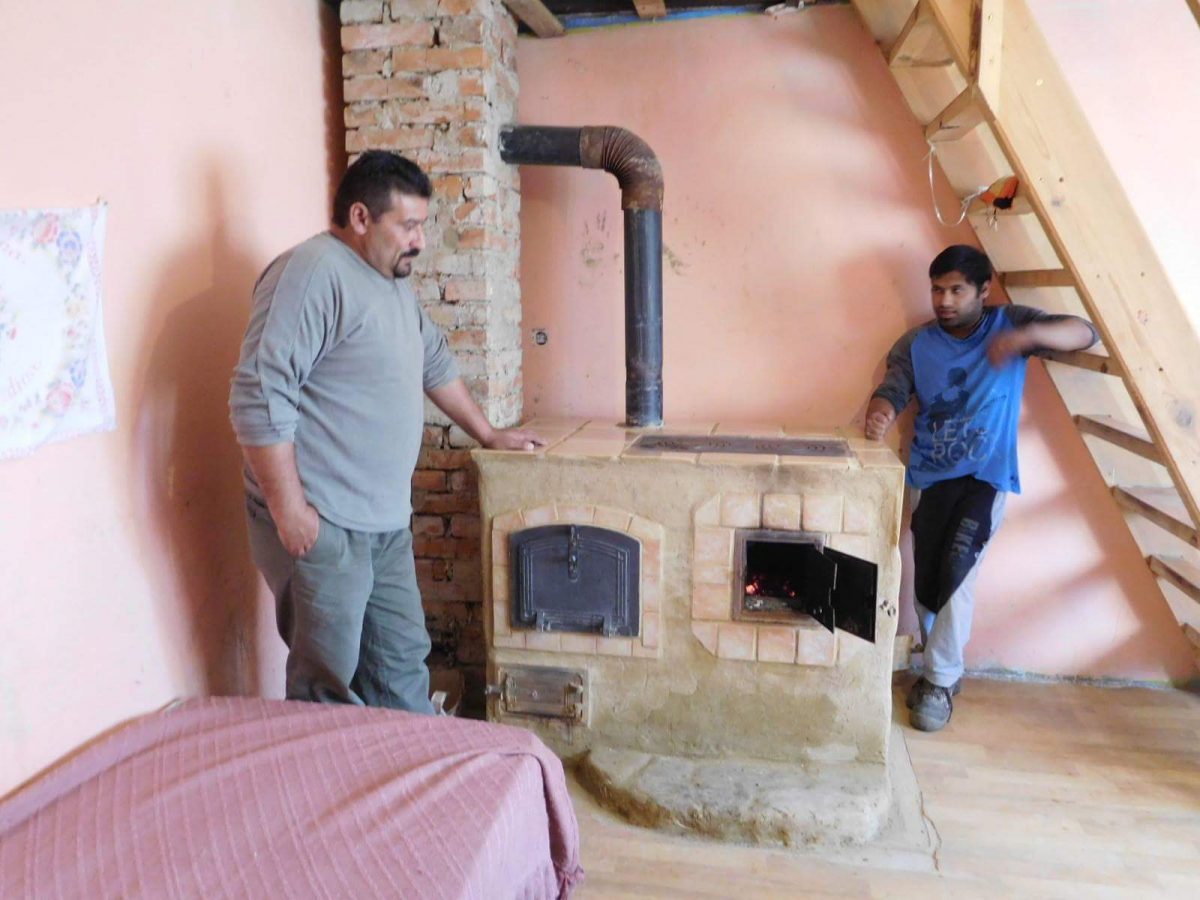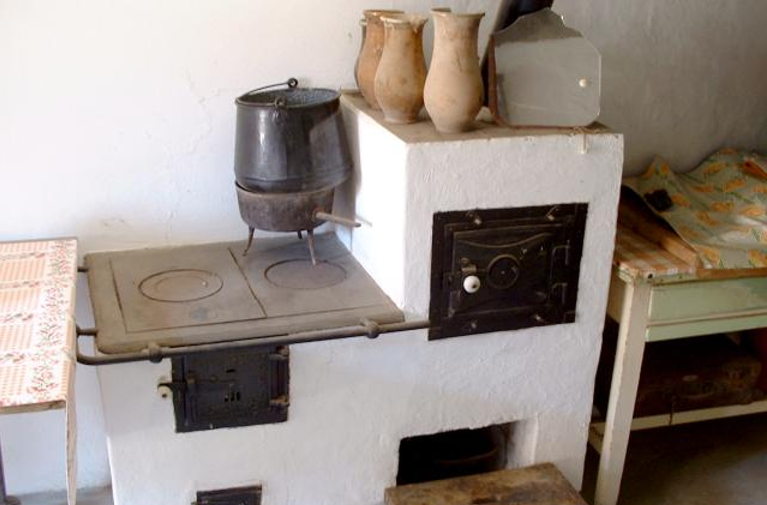In our 4th guest post from Gergő Benedek, we look at rural energy issues across Hungary.
While Hungary is preparing to invest into the most ambitious energy project of its entire history – building a new nuclear power plant – the rural areas of the country are facing dire energy problems that very well could be solved with less effort and maybe even more benefit.
Apro’ Tech is an ingenious word game with Appropriate Technology, the movement of achieving the best possible result with the resources at hand, and the word for ‘tiny’ in Hungarian, which happens to be ‘apró’. It represents the small scale of the energy solutions this team is aiming for, while hinting subtly at the scientific philosophical background of their operations.
‘I studied product design on the University of Sussex. I’ve been working at a local supermarket to cover my costs of living. I think that’s where my green thinking sprouted from, seeing all the wastefulness.’ Nóra Feldmár, a member of the Hungarian Transition Hub team.
Later I went to the Netherlands to study Industrial Ecology: a systems approach where the aim is to mimic natural cooperation to maximize efficiency. One thing I learned there is that I don’t want to work for big corporations and optimize their environmental impact. I wanted to utilize my skills elsewhere.’
Nóra took part in numerous local energy projects in extreme poverty areas of Hungary, before starting up Apro’ Tech. Her Industrial Ecology thesis work centered on a project in Told, one of the many forsaken little villages on the eastern edges of the country. The population here is generally poor, with low education, possibilities for work are very limited. The percentage of the Roma is high, in some cases, dominant. Suffering from segregation, they are hit even harder in these rural areas that are often difficult to even access. Energy poverty is a Europe-wide problem, with 10% of the total population affected – with the poorest regions of Eastern Europe being in the most desperate conditions, with decaying infrastructure and critical housing situations. These are the places where most of the Roma can be found.
Nóra volunteered for a local NGO here that is known nationwide for its exemplary Roma youth reintegration efforts. She spent a summer here during her study years, and she realized that one of the most critical challenges these people face are heating their homes during the winter months.
This is how her bio-briquette project started, which also got some international recognition.
‘It proved to be pretty challenging to motivate people, families, to work hard during the hottest summer days, gathering agricultural waste, and to press them into briquettes and hang them out to dry, so they can heat with something in the winter days. And when you secure something they can use as firewood, a whole new array of questions pop up. The old, wasteful heaters they use. The complete lack of insulation on the roofs and bases, which means that even replacing the doors and windows or insulating them with silicon would not be of significant help. I got the impression here that firewood is only a part of the problem. We need to think more forward.’ Nóra Feldmár
 Traditional Hungarian economy fireplace
Traditional Hungarian economy fireplace
Poor families are forced to burn garbage, even plastic, because firewood is scarce, pricey, and the wood they can acquire is often too wet for optimal burning. This, of course, implicates serious health concerns. Firewood, after two years of drying goes down to 20% moisture from 40-50%, which is a huge difference in how efficiently it can generate heat.
‘We need local rural governments to plan ahead with their social firewood programmes, secure the wood beforehand, establish energy plantations and build a storage area for the wood. If this is done appropriately, it could serve as a stable source of dry firewood for poor local families. This could be a local, resilient and off-grid solution, and if we consider the low emissions of a highly efficient heater, then wood burning could become more environmentally friendly than it is now.’
Nóra has a point. Hungary is one of nine EU countries (including the UK) that have all already been given final warnings for significant and consistent breaches of EU limits on air pollution. And in rural Hungary, the no. 1 pollutant is residential heating, with people burning wood and coal of dubious quality, and, in the poorest homes, even trash. The kinds of masonry heaters Nóra and her team can build, however, can burn wood at incredibly high temperatures, which means that ‘even the smoke is burned’, so the pollution effect of the emissions that leave through the chimney are much lower than the heaters that dominated rural households in the last century.
Granted, the poorest homes are not where the newest and most efficient technologies will be applied – these heaters will need to deal with wet wood and possibly everything combustible, to create heat dependably for the owners. Still, these heaters are a far cry from the raggedy iron stoves these homes often feature.
‘We want to back the possibility of high enviromental friendliness of firewood with data. I would love to test some of the ‘supermarket-heaters’, as we call them, which are due to be banned from 2022 anyway, which, on the other hand, leaves no option for the poor families. If we show what masonry heaters can do, maybe we could help shape the energy policies towards these community-friendly methods. Heaters built by local craftsmen, powered by locally produced and prepared firewood seems like a good solution for the dire energy situation of rural Hungary.’

A heater built by Nora and Ed Morriss in a Roma community in Slovakia.
Nóra is trying to turn this endeavour into a form where it can secure grants. She is already utilizing her contacts she made while studying heater building, and she has found several builders who are more than willing to participate in ‘social’ projects for reduced prices. This gives them extra visibility, and they can pay back some of the profit coming from their acquired new orders to Apro’ Tech which helps to power new social and extreme poverty projects.
According to their estimates, Apro’ Tech can build a simple, sturdy and effective heater for poor families for roughly 1000 GBP, and these heaters could provide a 500 GBP cut in their heating costs in a year. Of course the numbers vary widely, depending on the location, firewood accessibility and the size and circumstances of the given home: but what is sure is that it is not a far fetched claim to state that the heaters return the investment in a matter of a few years, while offering a much more comfortable and lively home. Masonry heaters disperse heat evenly all over the room, unlike the cheaper heaters which generate a lot of heat in a few feet radius, while leaving the far corners cold, so they offer a vast improvement on the living standards of their owners, from day one.
When we take into consideration that roughly 25% of the Hungarian population is living in a building with substandard energy infrastructure, either with wet walls that are prone to molding, or windows that can’t keep the cold out, we have to wonder: is the best energy investment the country could make really a 12 billion GBP nuclear power plant?
Of course, Paks II offers electricity, which is barely used as a heat source. But taking a look at the big picture, we can understand that from this kind of money, every single Hungarian home could be improved significantly. Energy poverty could probably be eliminated at once, overall residential energy efficency could be improved by leaps and bounds, nationwide.
Masonry heaters are the prime examples of what is going on in local sustainability projects: people all over the world rediscover old, tried and true techniques, and utilize cutting edge technology and modern science to optimize them further, tackling challenges from local food production to local energy generation.
The possibilities seem limitless, if we take the responsibility for living with these new opportunities, instead of staying trapped in the obsolete.





